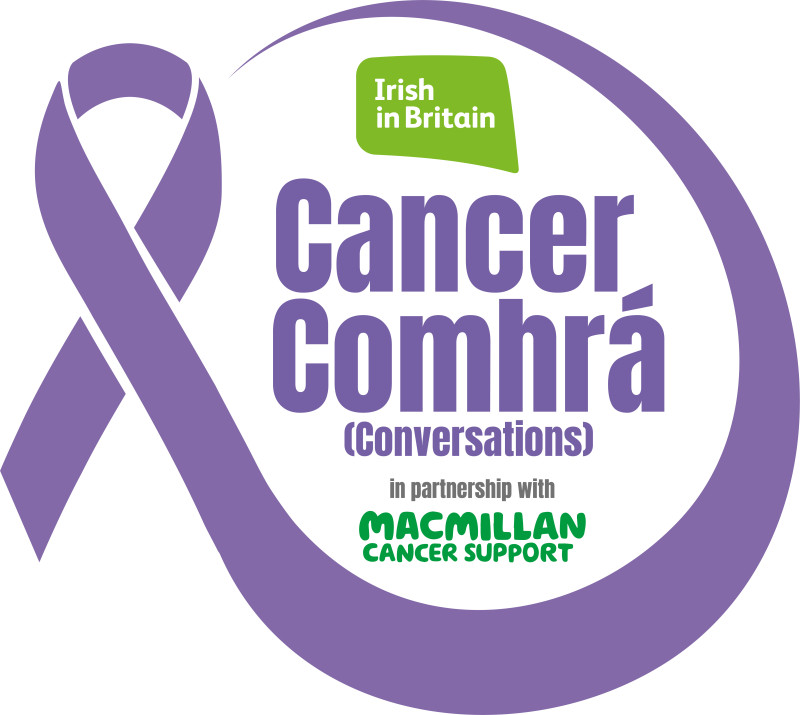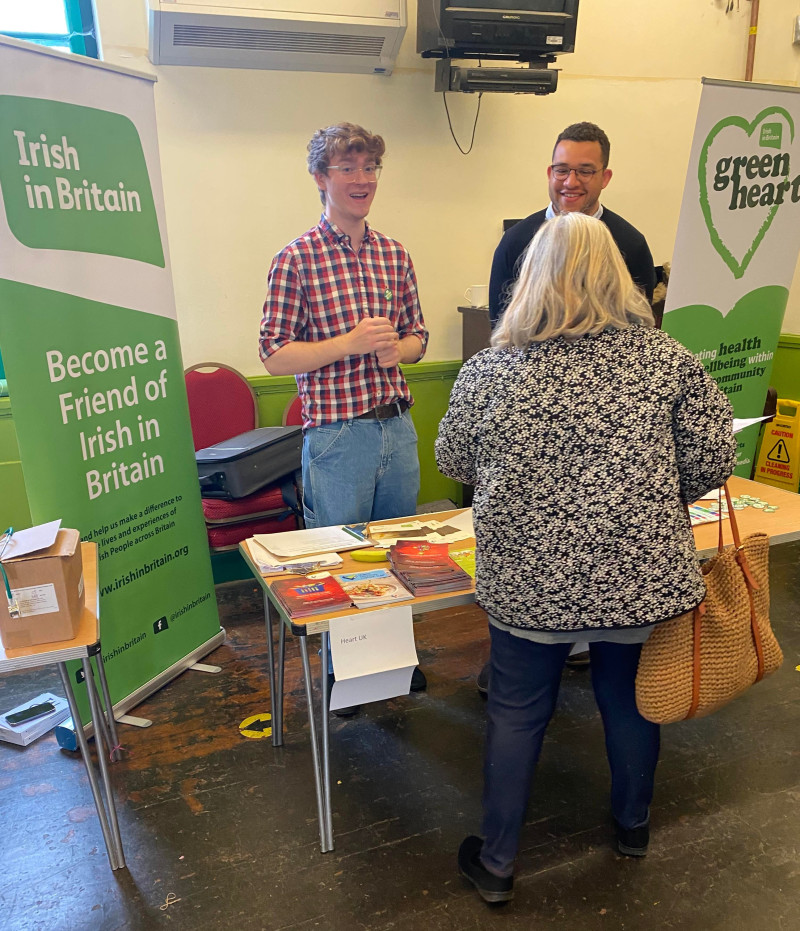Cancer among the Irish in Britain

Perhaps the most significant health concern for the Irish community is the disproportionate, persistent and, in some cases, the increasing levels of cancer mortality among the Irish in Britain.
There are many different factors which contribute to this, not least our unwillingness to talk about cancer. This means that people often delay seeking help and present with cancer very late, when treatment is likely to be more aggressive and less successful.
Read the personal story of breast cancer survivor and friend of Irish in Britain, Fiona McGeever, with a message to seek help if you feel something is not OK – HERE.
Dr Mary Tilki has published some advice below for the Irish community about the benefits of getting cancer seen to early.
CANCER AND THE IRISH COMMUNITY IN ENGLAND AND WALES
By Dr Mary Tilki
Irish people in Britain have some of the highest death rates from cancer in the population of England and Wales. Part of the reason for the high incidence of cancer in the Irish community is because we are an older population. Cancer is more common and sadly less well treated in older people.
More worryingly these high rates are also found in the second and third generations – our children and grandchildren. Rates of death from cancer are going down in the UK, but rates for Irish people are going down more slowly and some are even rising.
Research has shown that people from Irish and other migrant communities are less aware about cancer. They don’t talk about it, they don’t go for screening, they don’t get treatment early enough and therefore there are high rates of premature mortality in those communities. We Irish even avoid saying the word “cancer”, instead calling it the “big C” or talking about growths or masses.
Good news about cancer
Being diagnosed with cancer is clearly frightening and fear is a natural reaction. But our fears should not prevent us seeking help and recognising that there is good news about cancer. The good news is that more people are surviving cancer now than ever before.

In both the UK and Ireland, 50 percent of people diagnosed with cancer today will survive their disease and live 10 years and beyond. When cancer is caught early, we have a far better chance of beating the disease and more options for treatments.
Great strides have been made in the detection and treatment of cancer and many are now successfully cured, especially if diagnosed and treated early. In 2022, new analysis found that the NHS is diagnosing more patients with cancer at an earlier stage than ever before.
Cultural reasons why Irish people do not seek help early
Obviously, there is a danger of assuming all Irish people behave in the same way, but our experience suggests there are some common factors which contribute to late diagnosis and therefore poorer survival. Irish people are reluctant to accept the cancer screening that is on offer, seek medical help late and are diagnosed later so therefore treatment is more aggressive and less successful.
Older people in particular are reluctant to bother the doctor thinking that their problems are never as bad as anybody else’s.
Although cancer rates are improving considerably, the rate is slower among older people. Men are worse than women. They are big and strong and don’t fuss. We need to encourage friends and family to seek medical help.
We Irish can be intolerant of people who we think are preoccupied with their own health, always ill or always going to the doctor.Also if the doctor tells them there is nothing wrong or they are being over anxious, they don’t argue. Many older people especially are afraid to question people in authority such as doctors. If they are fobbed off, they are less likely to go back, even though the symptoms persist.
Many Irish people are embarrassed to talk about bowels or waterworks. Some people have even thrown the bowel cancer test in the bin rather than fiddle with a bit of poo!
We don’t like talking about our private parts. Vaginas, vulvas, anuses and penises are strictly taboo, so we don’t go for cervical screening, mammography and men are particularly reluctant to have prostate examinations.
Irish people are also reluctant to seek professional help if they think they might be in some way to blame for their health through smoking, drinking, bad diet etc. People will treat themselves with over the counter medicines.
Others rely on prayer, novenas or candles. Although this is important coping strategy, it should not delay getting professional help.
If you believe in the power of prayer, pray for the courage to go to the doctor, pray that the doctor will listen, refer you quickly and if cancer is found, that you will have best consultant and the finest treatment